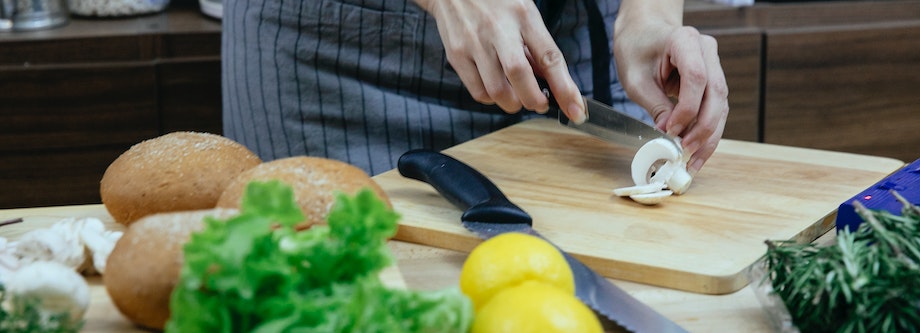Vegetarian Meal Prep For Weight Loss
Eat Better
Why Prepare Vegetarian Meals?

Recent figures suggest that just over 6% of the UK population are now vegetarian.1 An increasingly popular lifestyle choice, most non-meat eaters choose their diet because of animal rights and the environment. There is a third convincing argument for steering clear of meat, though: it seems that it may aid weight loss.2
Meal preparation (or “meal prepping”) can help those trying to lose weight.3 Preparing meals in advance not only saves time, but it all but guarantees you a consistent and reliable calorie intake that you have control over.3
Here we’re going to talk about the intersection of these two things: vegetarian meal prep. As you can imagine, veggie meal prep involves the advanced making of several plant-based meals, snacks or drinks. Let’s explore how it all works…
What is a good vegetable to meal prep?
There are two ways to meal prep. You can prepare, cook and store an entire meal. Or you can prepare the constituent ingredients.
When it comes to just prepping the vegetables themselves, there are some which lend themselves to being peeled, deseeded, washed and generally prepared in advance.
The following veggies are great for prepping:
- Aubergines
- Squash
- Green beans
- Broccoli
- Cauliflower
- Peas
- Brussel sprouts
- Celery
- Carrots
- Asparagus
- Onions
- Leafy greens
- Beetroots
Vegetables that aren’t so great for prepping
We’ve seen which vegetables are perfect for meal prep. Now let’s go through a few that don’t really suit advanced preparation. The following are better dealt with on the day. Unless you like your veggies droopy or mushy!
- Mushrooms
- Potatoes
- Cucumbers
- Lettuce
- Tomatoes
- Avocadoes
Of course, this only really applies if you’re looking to prep the vegetables and keep them fresh. If you’re planning on cooking and keeping them for a while, they’re all okay.
Vegetarian meal prep ideas
When it comes to vegetarian weight loss meal prep, there are lots of options out there for you. What you prepare for later will depend on your tastes, of course. And what kinds of veggies, meals and cuisines you like. There are some basic staples that are worth keeping up your sleeve, though.
These are some favourites:
- Casseroles
- Enchiladas
- Sandwiches
- Fried rice
- Grazing bowls
- Salads
- Soups
- Curries
- Pies
- Sushi bowls
- Burrito bowls
- Moroccan lentil pots
- Stir fries
- Mediterranean roasted vegetables
- Bento boxes
- Pasta pots
- Quesadillas
How to meal prep vegetables
It’s fairly easy to meal prep veggies. Here’s how you do it:
- Sort your produce into categories, such as what can be prepared in advance and what cannot
- Peel if necessary, then discard the peel
- Cut into tiny pieces, cubes or batons
- Put into airtight storage containers in serving-size quantities
- Plan to start with softer veggies
Can you meal prep for 5 days?
If you’re sold on the idea, you may still be wondering a few things, such as ‘how long can you meal prep veggies for?’ Well, the answer to these types of questions will generally depend on the specific vegetable or meal you’ve prepped, but we can still draw some fairly useful general conclusions.
How long can you keep meal prep in the fridge? You can keep chopped and raw veg in the fridge for anywhere up to two weeks.4 Although it’s worth checking on them after four days to make sure they’re keeping well. The temperature of your fridge plays a role too.
When it comes to cooked vegetables – in a meal or separately – allow anywhere up to four days in the refrigerator. After that, they’re likely to spoil.5
You’ll get anywhere up to three months out of cooked or uncooked vegetables, separate or in a meal when frozen in a freezer. They can keep for longer, but just be prepared for a slight drop in flavour and texture on defrosting.6
Other meal prepping tips
Here are a few other top tips to help you make the most of meal preparation:
- Choose a day of the week for prepping and stick to it (Sundays, for instance)
- Choose dishes needing various cooking techniques to save time. You can only cook so many dishes at once if you follow recipes that call for the same device, like the oven
- Make sure you spend money on high-quality containers that are leak-proof and freezer- and microwave-safe
- To avoid food poisoning, ensure you cook, store and reheat meals at the proper temperature
- Choose the appropriate number of meals; avoid preparing too many or too few for the week
- If you’re short on time and have the money, you could consider using a professional meal-planning service